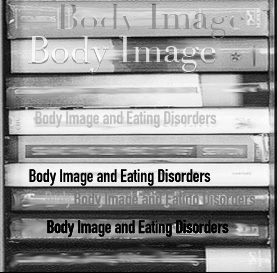What is Body Image and Mindful Eating?
Body Image refers to the way we think and feel about, and see our body. Our body image can be influenced by our own beliefs but also the beliefs of our friends, family and society as a whole. An unhealthy body image can lead to us suffering low self esteem and can adversely affect many different aspects of our lives.
Body image issues can affect men and women of all ages. Sometimes a negative body image can be developed in early childhood or during puberty and can stay with us our whole lives. Often a negative body image can change our relationship with food. Food can be a source of pleasure, and it can also be a problem which causes a great deal of pain and frustration.
There are many events in daily life that involve food including socialising with family and friends and in the workplace. If our relationship with food is fraught with guilt, shame and anxiety, it can take the pleasure away from enjoying the simplest things in life. Learning about Mindful Eating can assist in developing a healthy body image and a healthy relationship with food.
Understanding Mindfulness and Mindful Eating
The healing and transformative effects of mindfulness practice have been understood in the Eastern traditions for many centuries. Mindfulness can be defined as the practice of being in the present moment with awareness, openness and acceptance. Mindfulness encourages us to attend to our bodily sensations, feelings, and thoughts and has been demonstrated in psychological practice to enhance both psychological and physical well being. Mindfulness practice can assist us to become aware of our emotional and physical states and our need to ease our feelings of discomfort by eating. It supports us to experience awareness of what we are feeling without judgement.
Mindful eating encourages us to understand the impulses and the history that drives our urge to eat for comfort or distraction. We learn to tune into our bodily sensations and decide whether or not we are physically hungry. If the answer is yes we are physically hungry, we can eat while paying attention to the appearance of the food, the smell, the taste, and what the mind is thinking about the food that we are eating. If we understand that we are not physically hungry but are responding to historical impulses to comfort or distract, then we are able to attend to the urges and the meaning behind them; to develop the knowledge and skills to eat in the way that nature intended and to develop a healthy relationship with food.
The core premise of mindful eating is ‘it is not what you eat but the way you eat ‘, (Albers, 2008).
Some Reasons for Eating
- To sustain life
- To provide the body with nourishment and energy
- To satisfy physical hunger
- To comfort and nurture ourselves
- To manage overwhelming feelings
- To manage the effects of childhood/family-of-origin issues
- Because it is safe
- Because it is reliable
- To provide a distraction.
- Because we don’t know what else to do.
Eating is necessary to sustain life and to provide us with the nourishment and energy to live life in a fulfilling and satisfying way. Eating is pleasurable and an integral part of family and social life. Food and eating can also become problematic when we use it in some of the ways listed above. Many of these reasons for eating are valid ways to manage our feelings when we are unsure of other ways to manage or cope. When we are using food in this way, it is common to experience a sense of shame and an urge to be secretive about our eating habits.
Body Image Statistics and Facts
The National Eating Disorders Collaboration of Australia conducted a national survey in Australia in 2007 of 29,000 young people and found that the number one concern was body image for both males and females. Body dissatisfaction has been found to be a risk factor for unhealthy eating behaviours that include extreme dieting, binge eating, and emotion based eating. It has also been identified as a risk for the onset of clinical eating disorders such as anorexia nervosa, bulimia nervosa, as well as depression and low self-esteem.
Further studies indicate that even when women are classified within the healthy weight range, they remained unsatisfied with their body and wanted to lose weight.
These attitudes and dissatisfaction with our bodies can be understood in many ways, but it is evident that the impact of the media in the promotion of an ideal body type plays a large part in creating anxiety and dissatisfaction with our bodies. The way in which we perceive our bodies is connected with our beliefs about our value and our self-worth.
Our Psychologists and Counsellors can assist you to develop a positive body image and achieve a healthy relationship with food.
For more information about Body Image and Mindful Eating counselling or to make an appointment:

